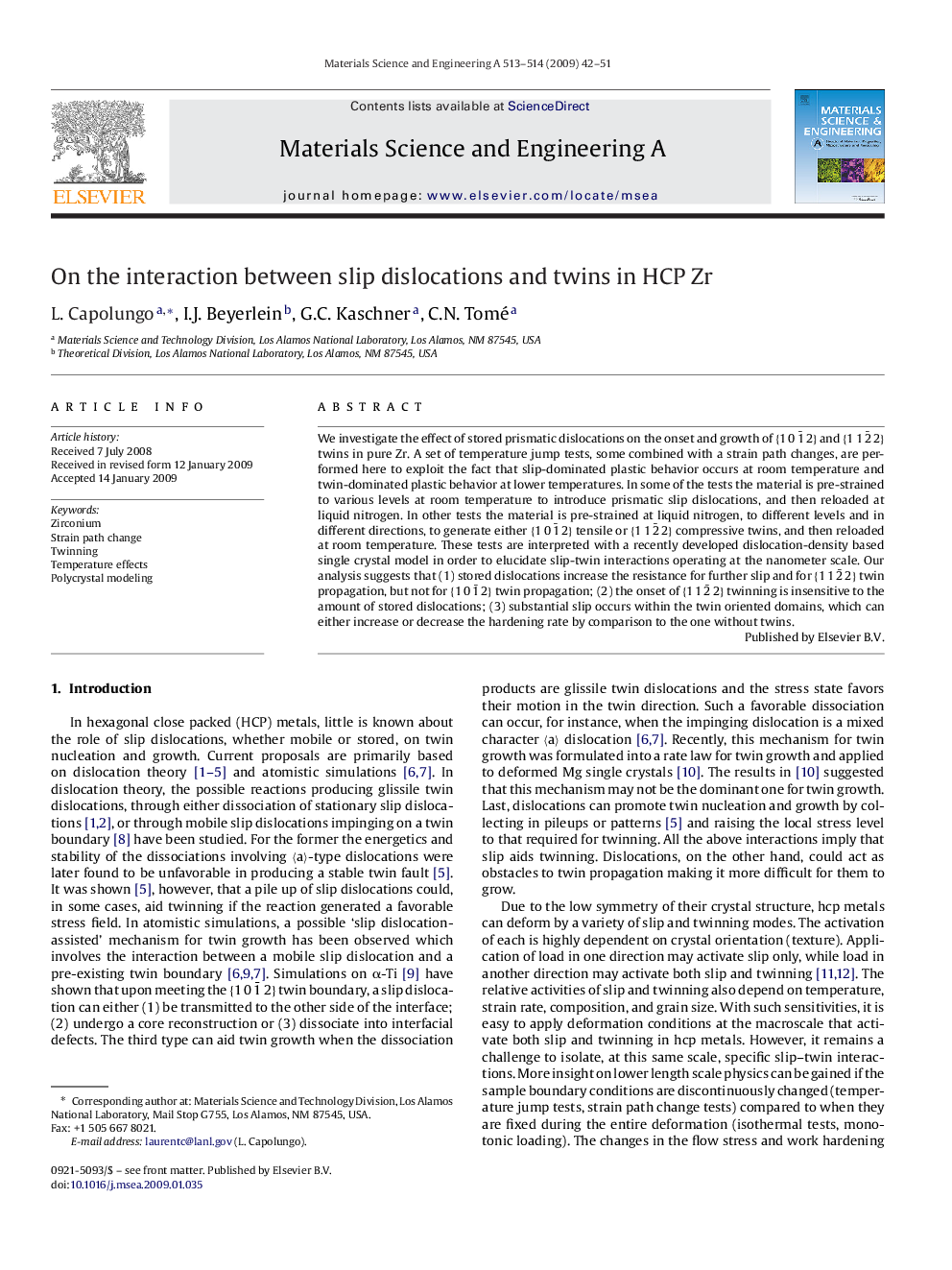| Article ID | Journal | Published Year | Pages | File Type |
|---|---|---|---|---|
| 1580455 | Materials Science and Engineering: A | 2009 | 10 Pages |
We investigate the effect of stored prismatic dislocations on the onset and growth of {1 0 1¯ 2} and {1 1 2¯ 2} twins in pure Zr. A set of temperature jump tests, some combined with a strain path changes, are performed here to exploit the fact that slip-dominated plastic behavior occurs at room temperature and twin-dominated plastic behavior at lower temperatures. In some of the tests the material is pre-strained to various levels at room temperature to introduce prismatic slip dislocations, and then reloaded at liquid nitrogen. In other tests the material is pre-strained at liquid nitrogen, to different levels and in different directions, to generate either {1 0 1¯ 2} tensile or {1 1 2¯ 2} compressive twins, and then reloaded at room temperature. These tests are interpreted with a recently developed dislocation-density based single crystal model in order to elucidate slip-twin interactions operating at the nanometer scale. Our analysis suggests that (1) stored dislocations increase the resistance for further slip and for {1 1 2¯ 2} twin propagation, but not for {1 0 1¯ 2} twin propagation; (2) the onset of {1 1 2¯ 2} twinning is insensitive to the amount of stored dislocations; (3) substantial slip occurs within the twin oriented domains, which can either increase or decrease the hardening rate by comparison to the one without twins.
